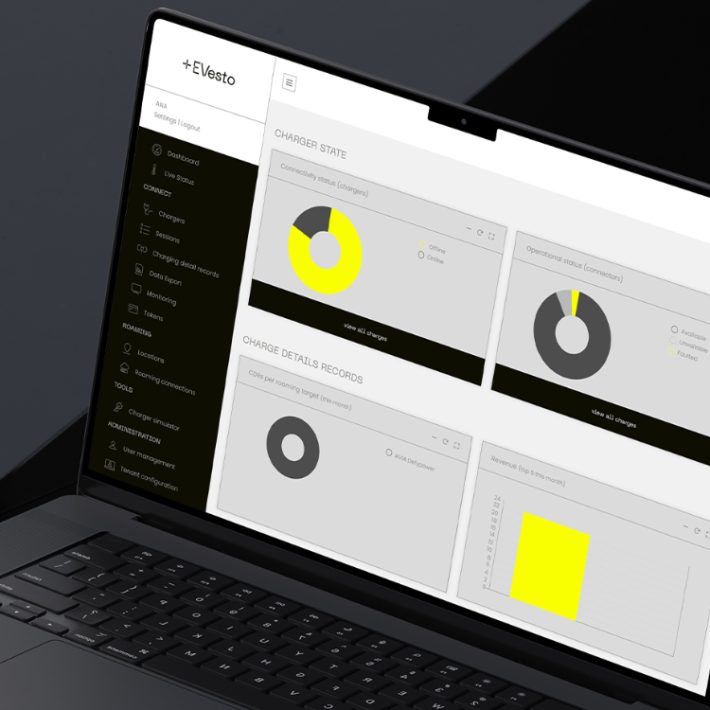Understanding the Open Charge Point Protocol (OCPP): From 1.6 to 2.0.1
8 August 2023
As the electric vehicle (EV) industry continues to grow, the protocols governing EV charging have evolved to meet the changing needs of the market. One such protocol is the Open Charge Point Protocol (OCPP), a network protocol that enables seamless communication between EV charging stations and a Charge Point Management System (CPMS).

OCPP 1.6: Laying the Foundation
OCPP 1.6, an earlier version of the protocol, established a solid foundation for communication between charging stations and the CPMS. It defined various types of messages for exchange, outlined error-handling procedures, and described operations that could be performed using the protocol. Importantly, it also provided for offline behaviour, allowing charging points to operate stand-alone in the event of the unavailability of communications or the CPMS.
OCPP 2.0.1: The Latest Evolution
Fast forward to OCPP 2.0.1, the latest version. The transition to 2.0.1 from 1.6 represents a major version bump, indicating that it introduces breaking changes. This version introduces several new features and improvements:
- ISO 15118 Support: This allows for features like Plug and Charge (PnC), which enables the EV to authenticate and authorize a charging session upon plugging into the station.
- Improved Security: Enhanced security features include using Transport Layer Security (TLS) for secure communication and introducing security events and security profiles.
- Smart Charging: More advanced smart charging capabilities can help manage the load on the electrical grid by adjusting charging speed or timing.
- Display Messages: The central system can send messages to be displayed on the charging station, useful for user instructions, promotional content, or other information.
- More Granular Transaction Data: Detailed transaction data can be useful for billing, analysis, and troubleshooting.
- Device Model and EVSE Management: New messages for managing device models and Electric Vehicle Supply Equipment (EVSE) have been introduced.
OCPP Compatibility and Backward Compatibility
OCPP compatibility refers to a charging station’s ability to communicate with a CPMS using the OCPP. A charging station is considered OCPP-compatible if it can successfully send and receive messages defined by the OCPP to and from a CPMS.
As for backward compatibility, OCPP 2.0.1 is not backwards compatible with OCPP 1.6. This means a CPMS using OCPP 2.0.1 cannot communicate with a charging station using OCPP 1.6 and vice versa.
OCPP vs OCPI
While OCPP governs communication between the charging station and the CPMS, the Open Charge Point Interface (OCPI) is another protocol that allows different CPMSs to exchange information. This can include information about charging station locations, availability, tariffs, and facilitating roaming services for EV drivers.
OCPP 1.6 vs 2.0.1
The main differences between OCPP 1.6 and 2.0.1 lie in the new features and improvements introduced in 2.0.1, as outlined above. These enhancements in security, smart charging, and other areas represent significant advancements in the protocol.
EVesto and OCPP
The core foundation of EVesto is built around standard protocols such as OCPP, OCPI, and OICP. At the heart of the EVesto platform lies the connectivity layer – the software that facilitates the connection of chargers with EVesto. Once this connection is established, a dialogue in the form of OCPP messages is initiated between the charger and EVesto. This exchange forms a crucial part of the EVesto platform and serves as the starting point for all the features it offers.
The technical protocol OCPP and the data it encompasses are enriched and modified within the platform, forming the basis for further communications with external systems, particularly in roaming. The OCPI and OICP protocols, designed to enable a seamless charging experience for EV drivers across different charging networks, function as a bridge between e-Mobility Service Providers (EMPs) and Charging Point Operators (CPOs). At its core, EVesto supports these protocols and incorporates algorithms that bridge the gap between the low-level OCPP protocol and the roaming protocols OCPI and OICP.
EVesto and OCPP 2.0.1
In an exciting development, EVesto has already implemented a subset of OCPP 2.0.1. Their initial support for OCPP 2.0.1 covers processes comparable to what OCPP 1.6 offers, marking a significant step forward in EVesto’s service offerings. EVesto is inviting its partners to begin experimenting with this new implementation. Additionally, EVesto has recently joined the Open Charge Alliance (OCA), further solidifying their commitment to advancing EV charging standards and protocols.
Understanding OCPP is essential for anyone involved in the EV charging ecosystem. The evolution of the Open Charge Point Protocol (OCPP) from 1.6 to 2.0.1 marks a significant advancement in the electric vehicle (EV) industry, adapting to the changing needs of the market. Companies like EVesto are leading the way, integrating these protocols into their platforms to enhance the EV charging experience. With their recent implementation of a subset of OCPP 2.0.1 and membership in the Open Charge Alliance (OCA), EVesto underscores the importance of these protocols in driving the development of the EV charging ecosystem. As we look to the future, these protocols will continue to shape the landscape of EV charging.
Dive deeper into the world of EV charging protocols.

